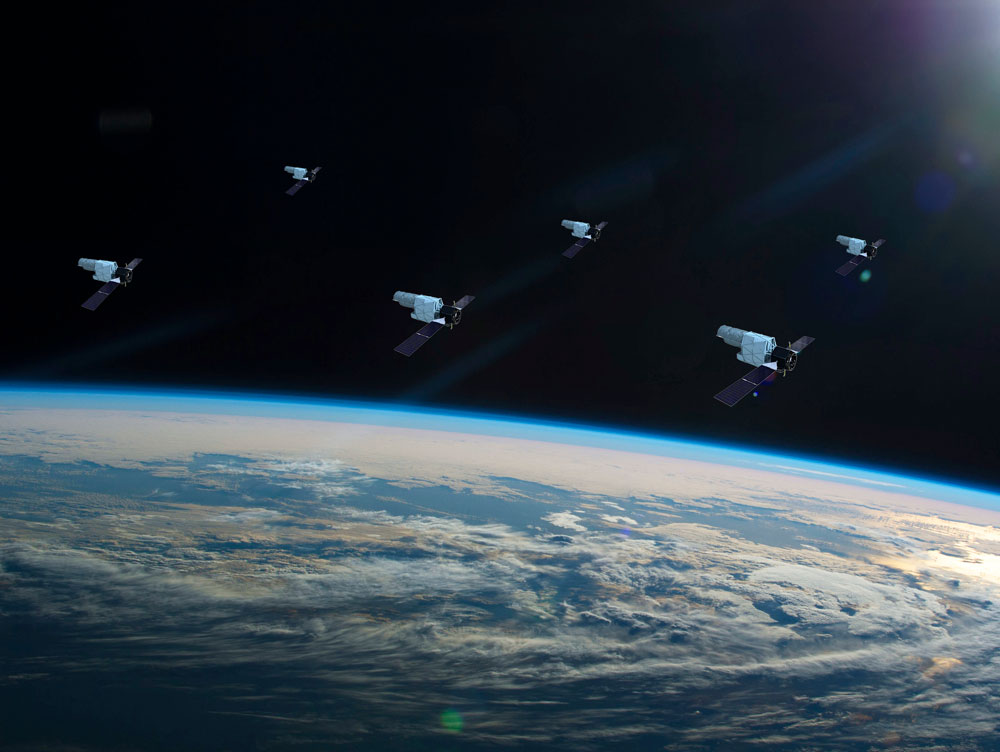Advancing astronomical discovery requires embracing new approaches that accelerate development, reduce costs, and expand access to space telescopes. By adopting more agile, cost-effective designs, and standardization we can build on the revolutionary insights of observatories like Hubble and JWST while fostering greater innovation and broadening opportunities for exploration.
In the past decade, commercial spaceflight has achieved order-of-magnitude reductions in launch costs for typical payloads, enabling a New Space era with dramatically cheaper and more standardized spacecraft, components, and satellite communication. Unfortunately, the cost of quality astronomical telescopes and large optical systems has not seen similar declines in cost or build times. The conventional space telescope development model as practiced by NASA and academia is of a novel and bespoke design, custom tailored and highly optimized to a particular scientific question. While successful at eventually delivering breakthrough science (albeit at significant cost) this approach has a high, and often unacknowledged, opportunity cost. Cost reductions in industry have been achieved through iterative engineering, and standardized design; learning fast, eliminating constant non-recurrent engineering, and benefiting from economies of scale. The implicit trade made by the astrophysics community in its approach to mission development has been driven by the assumption that the science return and discovery potential of one bespoke telescope is greater than that of 20x or more standardized ones. However, a standardized platform does not necessarily entail less performance, or a strictly unchanging design. A well designed program with iterative improvement can yield best-in-class performance faster and at lower cost (e.g. Falcon 9, Starlink).
This KISS co-hosted Symposium is designed to break the conventional space telescope development paradigm by establishing a scalable, pathway to build and deploy a standardized platform for high-performance space telescopes—ensuring that cutting-edge, orbital-class observatories become accessible to a broader scientific community.
The Symposium will focus on both the science goals enabled by this new approach of space telescope development, as well as addressing the engineering and execution required to realize this vision on orbit.
This Symposium will bring together experts in planetary science, astronomy, and cosmology to define a comprehensive set of scientific requirements for a versatile but standardized Ultra-Violet Optical Infrared (UVOIR) telescope platform. Our goal is to ensure that the proposed design can address a wide range of research objectives—from probing the origins of the Universe to searching for signs of life—while also being optimized for rapid iterative development and manufacturing.
In parallel, the Symposium will unite instrument scientists and engineers from academia, JPL, and industry to tackle the engineering challenges inherent to rapid, iterative development of standardized platforms. Key areas of focus include:
- Designed-for-Manufacture Scientific Tools: Developing instruments that are optimized for volume production without sacrificing performance.
- Precision Optics in a new engineering paradigm: Exploiting novel design approaches to achieve high-performance optical systems within relaxed size, weight, and power constraints.
- High-Throughput Calibration and Qualification: Establishing streamlined processes that ensure science-quality performance without the lengthy testing cycles of traditional methods.
- Iterative Manufacturing and Low-Cost Satellite Approaches: Pioneering production techniques that enable rapid build, test, and launch cycles.
- Programmatic impact of abundant, low-cost, data and changes to the scientific ecosystem
This integrated effort will provide a clear execution pathway for producing a standardized, 1-meter class UVOIR telescope platform that not only meets current scientific needs but also serves as a testbed for future enhancements and larger systems.
The outputs of this symposium will include a set of science requirements that span the capabilities space and a detailed roadmap outlining the steps required to transition from concept to production. These deliverables will serve as the foundation for a scalable, repeatable approach to space telescope development, ultimately democratizing access to orbital-class observatories. By laying out a clear pathway toward rapid, cost-effective telescope deployment, this KISS co-hosted Symposium will empower the scientific community and industry partners to accelerate innovation and usher in a new era of astronomical discovery.
Sponsored by Renaissance Philanthropy, this Symposium is part of a program to democratize access to tools for scientific discovery in space.



